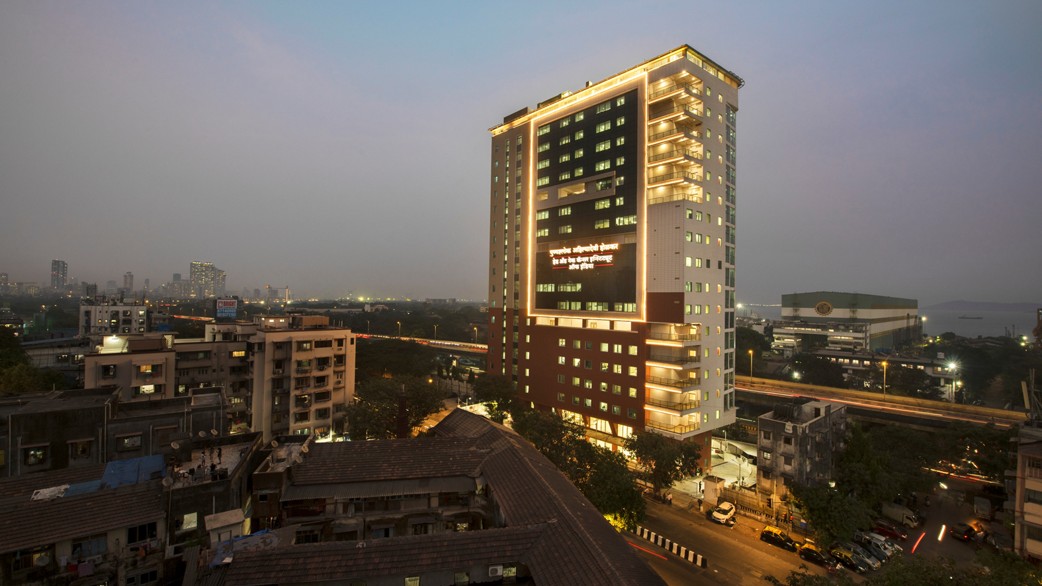In less than 18 months since its inception, the Punyashlok Ahilyadevi Holkar Head & Neck Cancer Institute of India near Dockyard Road railway station has emerged as a beacon of hope for head and neck cancer patients seeking high-quality, affordable treatment. Established in August 2023 by the CanCare Trust, the hospital has already served over 35,000 patients, of which 10,000 have received free consultations, and 4,000 have undergone life-changing surgeries.
Head and neck cancer constitutes 30% of all cancer cases in India, disproportionately affecting individuals from lower socio-economic backgrounds. “Our mission is to make cancer care accessible and affordable while providing holistic support that includes surgery, radiotherapy, chemotherapy, and rehabilitation,” said Reshma Naidu (45) , trustee, Punyashlok Ahilyadevi Holkar Cancer Institute of India.

Punyashlok Ahilyadevi Holkar Head & Neck Cancer Institute of India |
Origins of Compassion
The institute’s story traces back to a small yet heartfelt gesture in 1997, when the son of a cancer patient approached Dr Sultan A Pradhan (79) at Tata Memorial Hospital with ₹25,000—his mother’s last wish to contribute to the welfare of cancer patients. Dr. Pradhan, along with fellow doctors, used the amount to establish the CanCare Trust, which would later evolve into the cancer institute.
“This entire building is 100% donor-funded. Even though our rates are at par with Tata Memorial Hospital, we often subsidise treatment for daily wage earners, farmers, and others in need,” Naidu explained. The trust has spent over ₹5 crore in the past 18 months to support patients.
Unique Expertise and Technology
The institute prides itself on two cutting-edge specialties: laser surgery and skull base surgery. “Laser surgery is instrumental in preserving the voice box, significantly enhancing the quality of life for patients. It’s a rare capability in India,” said Naidu. The hospital also boasts expertise in skull base surgeries, a complex area of head and neck oncology.
Addressing Gaps in Care
Recognising the burden of late-stage cancers, the institute emphasises early detection and awareness. “Most patients come to us in stages 3 or 4, which compromises their quality of life. Educating communities, liaising with general practitioners, and integrating outreach programs are crucial,” Naidu said. The hospital collaborates with organisations like Prince Aly Khan Hospital for outreach camps and plans to establish a dedicated outreach department to expand its reach.
Holistic Support for Patients
Beyond clinical care, the institute offers robust support services, including a Cancer Rehabilitation Centre staffed by survivors and caregivers. “Our volunteers counsel patients on everything from body image concerns after surgery to techniques for regaining speech,” Naidu shared. The hospital also provides palliative care, with a dedicated team managing pain and emotional support for end-of-life cases.
The Road Ahead
The hospital aims to train a new generation of specialists through DNB and MUHS-accredited programs, addressing the national shortage of skilled head and neck surgeons. Naidu said their expansion plans include a new building with additional radiation therapy machines, chemotherapy beds, and research facilities to improve clinical outcomes.
As cancer cases continue to rise, the institute’s commitment to affordable and innovative care remains unwavering. “By creating a network of trained specialists and advancing research, we hope to alleviate the burden on families and ensure that high-quality cancer care is available closer to home,” Naidu concluded.
